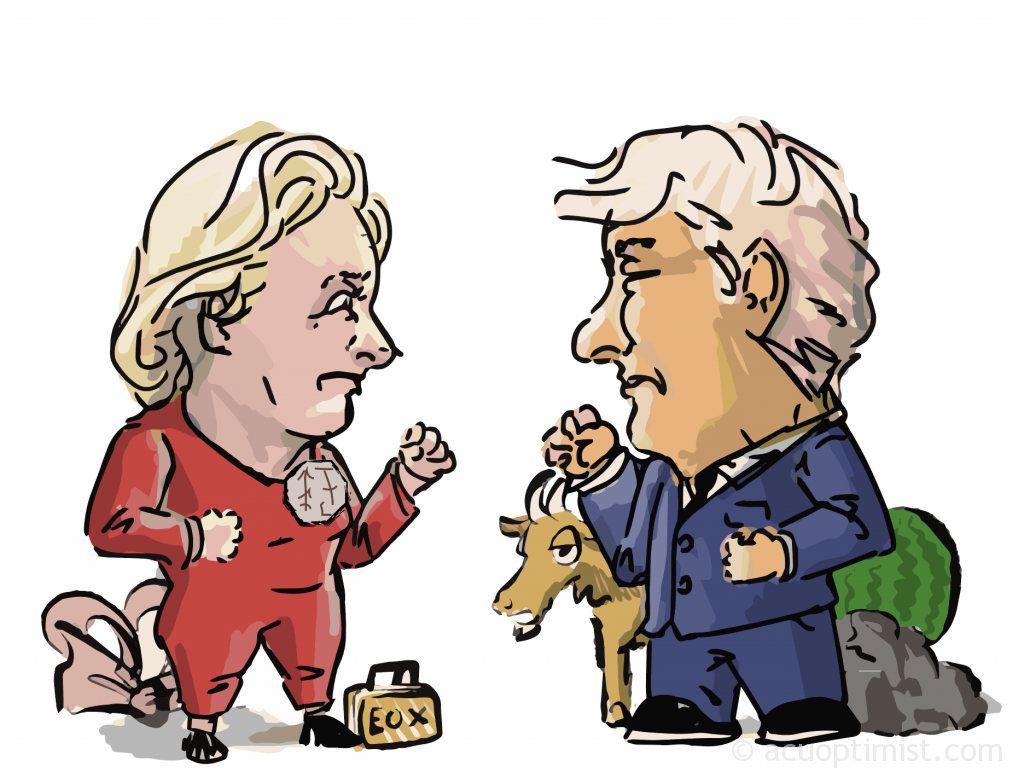Once upon a time, candidates for President of the United States decided to rush ACU social clubs. In the search for power and a club full of potential voters, these candidates are fighting for their bids in the rush to the White House. In the midst of the rushing process, Republican candidate Donald Trump and Democratic candidate Hillary Clinton faced off in the first presidential debate Monday night.
Like in the rushing process, when rushees try to impress club members and conversations veer in awkward directions, the candidates often got sidetracked during the debate. Clinton and Trump brought up topics for political reasons, rather than directly answering many of the questions asked by debate moderator Lester Holt.
Trump considered some of the smaller men’s clubs at first. While many voters have called him a racist, Trump did attend a rush for the new Noble Kings social club, a group of men who say they strive for diversity. Race and immigration topics were not discussed in Monday’s debate, but when discussing police and racial issues, Trump said he supported stop-and-frisk policies.
“Now, whether or not in a place like Chicago, you do stop and frisk which worked very well in New York,” Trump said in the debate.
His opponent disagreed, saying stop-and-frisk was found to be unconstitutional.
Clinton wore red to Monday night’s debate, causing many voters to think GATA was her number one club. However, she won’t be going GATA because she fears the GATA email scandal would reflect poorly on her campaign. During the first week of rushing, Tom Craig, director of student organizations and productions, accidentally sent a list of women to all the women invited back to the next GATA rush. He later sent an email stating it was a mistake, something Clinton has also said about her “mistake” in using a private email server as secretary of state.
Meanwhile, third party candidates Gary Johnson (Libertarian) and Darrell Castle (Constitution) were busy rushing smaller men’s clubs including Pi Kappa, Frats and Trojans. Trump decided not to rush these smaller clubs because less members would mean less votes from a brotherhood in November.
Clinton also wanted to get as many votes as possible from pledging so she decided not to pledge the smallest club, Zeta Rho. She also didn’t rush Tri Kappa Gamma because the color pink would take away from the strong female appearance she needs to be approved as a female candidate. Although Sigma Theta Chi would give her strong political connections to Dr. Gary McCaleb, vice president of the university, she was cut from the club after her bout with pneumonia made her ineligible for flag football games.
When Trump made a jab about Clinton’s stamina, Clinton said, “Well, as soon as he travels to 112 countries negotiating peace treaties and deals…or even spends 11 hours testifying in front of a congressional panel, then he can talk to me about stamina.”
Trump turned to Gamma Sigma Phi and Galaxy, two clubs with strong political connections to alumni and a combination of business majors and political science majors. At the same time, Trump knew Sub T-16 could be an option, despite the club’s recent suspension from campus because of an inappropriate Homecoming float. Having shown himself hardly concerned about political correctness in the past, Trump wasn’t worried about Sub T’s suspension.
“I have a much better temperament than Clinton,” Trump said in the debate.
With bids being handed out this week, voters are wondering which club the candidates will choose. Will Clinton choose the large numbers and long tradition of Ko Jo Kai? Or will she save the giraffes and pledge Alpha Kai Omega? Will Trump make Sub T-16 great again?
We’ll never know.

